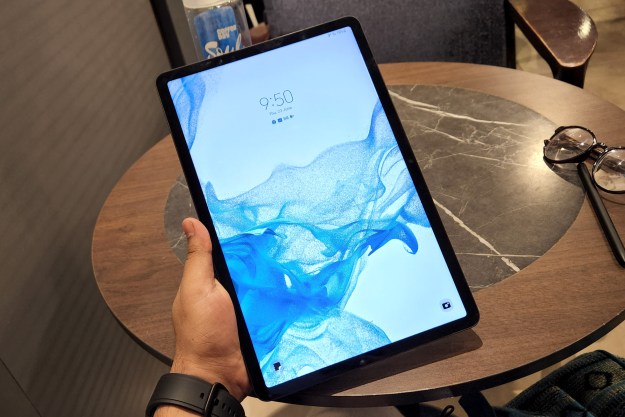 The Federal Communications Commission will announce today a new emergency alert system that sends a signal directly to consumers’ cell phones in the event of a disaster.
The Federal Communications Commission will announce today a new emergency alert system that sends a signal directly to consumers’ cell phones in the event of a disaster.
Rather than alert everyone to a potential threat, the Personal Localized Alerting Network (PLAN) will enable emergency officials to send text messages to people in specific, targeted geographic locations — which means those who need to know the most first will.
For those of you nostalgic for the disruptive multicolored bars, alarm-clock-annoying sound, and “This is only a test” from your TV, fear not: both the standard television and radio emergency alert systems will remain in place. PLAN is simply an upgrade to the system, says the FCC.
“The traditional alerts on radio and TV are still important, and they will continue, but more and more, mobile devices are becoming essential. You have them with you,” FCC Chairman Julius Genachowski told USA Today. “In the event of a major disaster, government authorities can get lifesaving information to you quickly.”
Alerts sent through the system will include information about natural disasters, like hurricanes, tornadoes and floods; alerts issued by the president; national security and other personal safety threats; and Amber Alerts about missing children.
All four of the major wireless service providers, which includes, Verizon, AT&T, Sprint and T-Mobile, have voluntarily cooperated with the US government to help institute the PLAN service, which the FCC plans to roll-out nationwide by April 2012.
Not all cell phones have the circuitry needed to be PLAN-ready, however. In order to connect to the PLAN, cell phones reportedly require a specific type of chip, which are absent from some phones. The FCC says consumers will have to check with their wireless carrier to find out if their current cell phone can work with the PLAN system, the details of which will be officially announced today in New York City.
The iPhone 4 and a number of other new smartphones already include the circuitry needed to work with PLAN. An AT&T spokesperson tells USA Today, however, that the iPhone will need a software update before it will work. AT&T also says that its new batch of cell phones, due out in October, will all be PLAN-certified.
Cell phones are not required by law to have the special chip. But the FCC says it hopes that handset makers would be able to use the inclusion of the special chip as a selling point to woo customers.
The alerts will possibly have a special appearance, or unique accompanying sound or vibration, which will help people differentiate between an alert about an impending natural disaster and, say, a friend hitting you up to go to an all-you-can-eat chicken wings joint.
While it’s not yet clear, it seems doubtful that cell phone companies will be able to charge users for alerts sent through PLAN. Regardless, the messages will (hopefully) be few and far between.
“We don’t expect the alerts to be frequent,” Genachowski told The New York Times. “They will be reserved for when they are truly needed, for tornadoes or for disasters like 9/11.”
Editors' Recommendations
- The best prepaid phone plans in 2023: the 6 best ones
- Cell phone carriers now have the power to stop robocalls. When will they use it?


